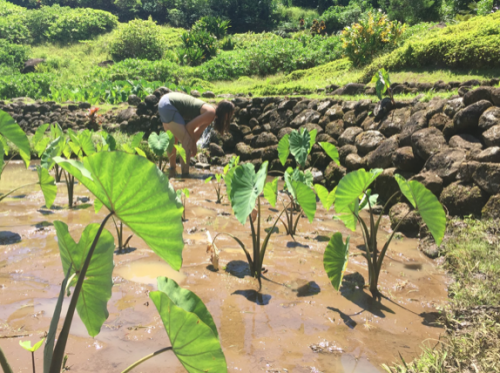
Imagine that you are leaving your home forever. You don’t know where you will end up or how long it will take you to get there. All that you know is that once you depart you will not return, so forgetting something that you need is not an option.
If you were packing for the rest of your life, what would you take with you?
Thousands of years ago the ancient Polynesians were faced with this question, and as they prepared to leave their homes behind, they packed plants. The 20 or so that were deemed worthy enough to be paddled 2500 miles across the ocean were selected with specific purpose(s) in mind.
Today many of us are out of touch with where our resources come from. Our ability to research, find, and buy just about anything using technology has rendered us dependent on our devices for survival. Farming, fishing, finding safe drinking water, and navigating are skills that many members of my generation, including myself, are severely lacking. This is all to say that if we were forced to pack for the rest of our lives, I do not think our lives would last very long.

For the ancient Polynesians, it makes sense that many of the plants were chosen for food and/or building materials, but, what amazes me is the prioritization of cultural preservation. Ki was brought to fend off evil spirits both during their journey and at their final destination; today you still see ki planted at almost every house on Kaua’i. As well as serving as a staple of the Hawaiian diet, kalo has great cultural significance, as it is part of the human creation story. All of these plants had and have great importance on this island, and as such the Canoe Garden at my worksite, Limahuli Garden and Preserve, is the first and last stop of the garden tour.

The Canoe Garden rests on ancient, original terraces that have been there as long as Hawaiians have lived here, and every time I walk through it– whether I am giving a tour, en route to a work site, or simply wandering – I learn something. I have overheard a few visitors mention in our garden that they feel as if they are standing in a sacred or special place, and they are right. Limahuli is a window into the past that provides inspiration and knowledge for the future.
